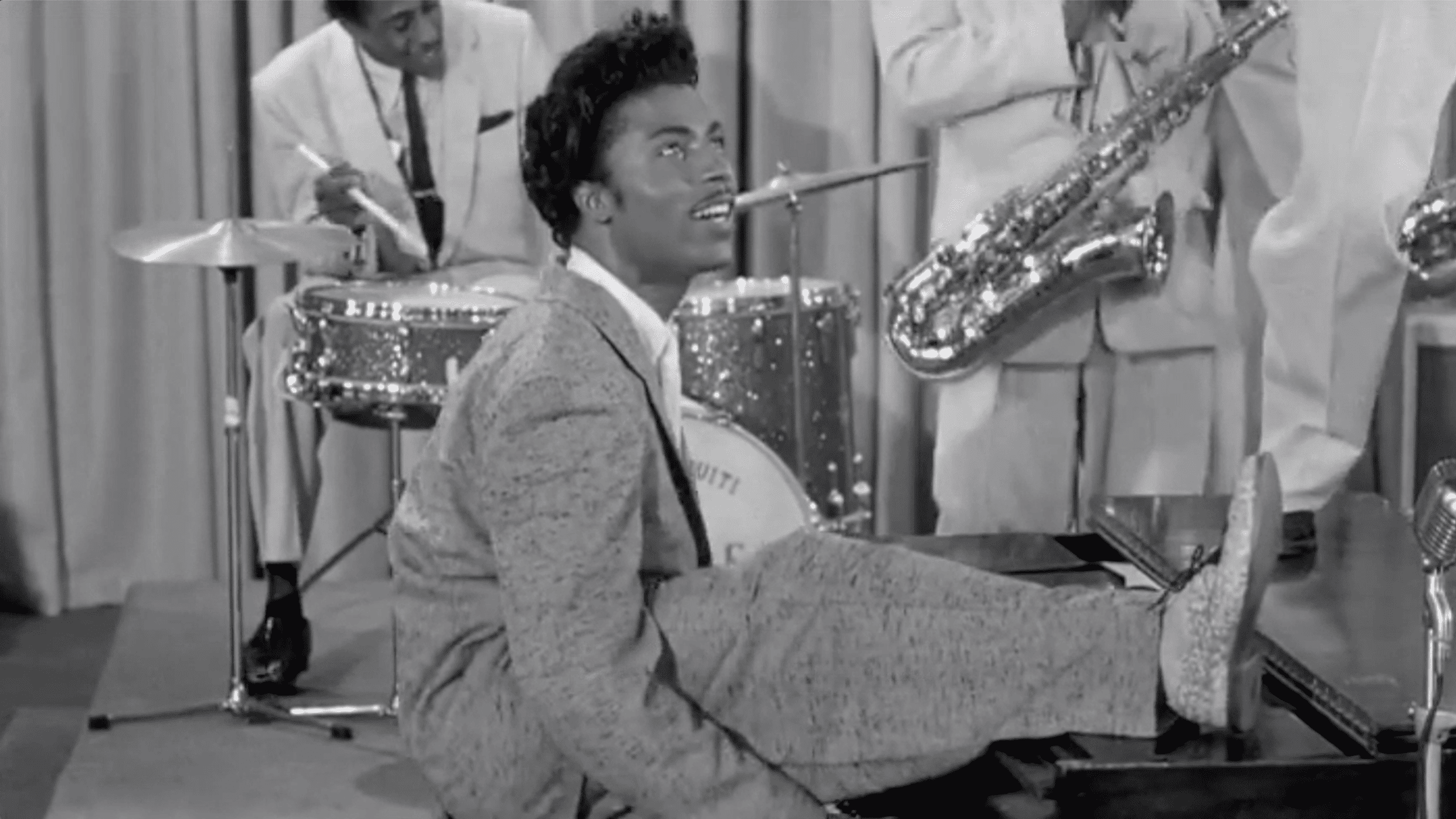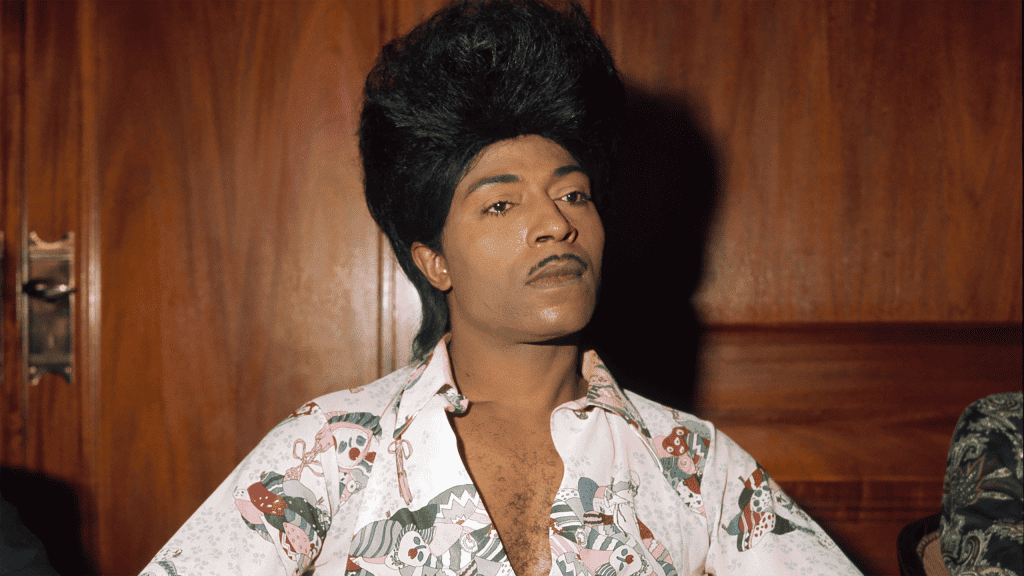We can trace the last seventy years of American popular music back to one person.
You might get different answers if you asked who that might be. One of the most successful films of last year may lead many to say Elvis Presley. Someone who isn’t especially good at math might claim it is Paul McCartney. With all due respect, I can’t imagine someone suggesting Pat Boone, but anything is possible. Anyone looking to Fats Domino or Chuck Berry would be closer, but slightly off the mark.
No, the progenitor is none other than Little Richard. The irrepressible, flamboyant icon shook a nation to its core with his sound when doing so as a Black queer man could warrant a death sentence. And yet, in the decades since “Tutti Frutti” and “Good Golly, Miss Molly” reshaped American culture, neither his talent nor his identity ever received a proper appraisal. Could it even be done?
Little Richard: I Am Everything is the long-overdue correction and clarification of the record, pun intended. Lisa Cortés’ documentary traces every inch of pop and rock music back to Richard Wayne Penniman’s example, thoughtfully curated amongst Black, queer, and religious artists in the Deep South. Through firsthand accounts from him and his loved ones, we see how his upbringing formed and calcified the contradictions that would complicate his career and legacy. Amidst the dizzying highs and disappointing lows, his recording and performance innovations stay foregrounded through archival footage that spans his lifetime and testimonials from contemporaries, scholars, and current artists who provide valuable context.
I Am Everything is an illuminating work, even for those claiming to be well-versed in American culture. Cortés’ detailed exploration of Little Richard’s early days also highlights his boundary-shattering influences, like Sister Rosetta Tharpe, the “mother of rock and roll,” and Esquerita, who informed Richard’s visual style. The film canvasses the Black queer artistic communities that Little Richard came up in. We learn about his time as a drag performer on the chitlin circuit alongside artists like Ma Rainey and Lucille Bogan. For him and other queer and gender nonconforming people, these spaces of refuge and fantasy in a time where their identities were openly criminalized. Little Richard is an undeniable link between Black queerness and the electrifying sound that would redefine American music. The power that comes from its explicit acknowledgment cannot be overstated.

Of course, I Am Everything also explores how desperately the music industry tried to silence Black artists while profiting off their artistry. There isn’t much Cortés can add to the cultural appropriation conversations, so she lets Elvis Presley and Pat Boone’s covers of “Tutti Frutti” speak for themselves. (They’re not good.) She does explain why Little Richard’s music and stage presence was considered so dangerous. His music spoke to a generation re-defining what American youth could be, a time of post-war freedom and experimentation. An openly queer Black man being the voice of that movement would shred the country’s tenuous social order. And so, we have Pat Boone. There is no silencing the original, though, at least at first.
I Am Everything is deeply respectful to Little Richard, sometimes to a fault. (The stylistic metaphors – glittering overlays and images of exploding supernovas and blooming plants – feel redundant.) However, Cortés doesn’t ignore his contradictions or faults. The film doesn’t shirk from his dalliances with overt Christian conservatism and the accompanying harmful homophobic language. Several queer scholars note in the documentary that Little Richard’s legacy is messy. It is, however, easy to empathize with when you observe his deeply-held religious beliefs and the industry’s destructive element always within his reach. You also understand why he kept returning to the music he sometimes excoriated. It wasn’t just because of financial necessity but because he wanted proper acknowledgment.
The acknowledgment finally arrives with I Am Everything. The documentary should be the definitive film on rock and roll’s origins in Black and queer art. It tears open the American pop cultural canon and compellingly traces everything and everyone, from Elvis to Lil Nas X, back to the singular talent of one extraordinary man. Little Richard knew from the start what the world was uncomfortable saying: he started it all. It took way too long, but we’re finally on the same page, and good golly, we won’t forget.
Little Richard: I Am Everything had its World Premiere in the U.S. Documentary Competition section of Sundance Film Festival 2023.
Director: Lisa Cortés
Rated: NR
Runtime: 98m
The new definitive record of Rock and Roll history
-
GVN Rating 8.5
-
User Ratings (0 Votes)
0
A late-stage millennial lover of most things related to pop culture. Becomes irrationally irritated by Oscar predictions that don’t come true.







